News
-
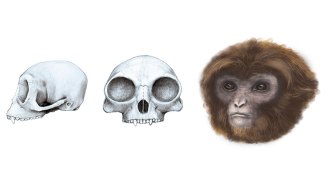 Anthropology
AnthropologyPetite primate fossil could upend ideas about ape evolution
Ancient fossils suggest modern apes descended from a small, gibbonlike creature.
By Bruce Bower -
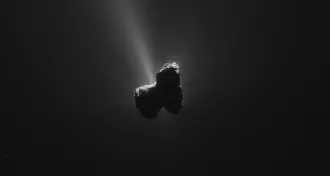 Planetary Science
Planetary ScienceOxygen leaking from comet surprises astronomers
The Rosetta spacecraft detected oxygen molecules coming out of comet 67P that might have been buried since the formation of the solar system.
-
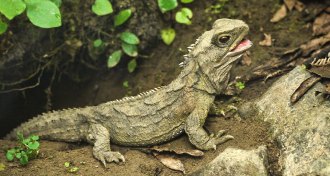 Life
LifeRare reptile holds clue to penis evolution
Preserved Victorian specimens reveal budding embryonic penis that disappears before adulthood.
By Susan Milius -
 Health & Medicine
Health & MedicineDaily drug shown effective in preventing HIV infections
After a history of controversy, preexposure prophylaxis has been demonstrated to work for HIV prevention.
By Laura Beil -
 Health & Medicine
Health & MedicineEating meat officially raises cancer risk
Eating processed meats like bacon, ham and sausage causes cancer, says the World Health Organization.
-
 Quantum Physics
Quantum PhysicsLight mimics hotel with limitless vacancies
By mimicking a mathematician’s method for creating vacancies in a hotel with an infinite number of rooms, physicists may have found a way of increasing the amount of data that can be carried via light.
By Andrew Grant -
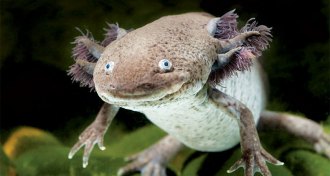 Animals
AnimalsSalamander ancestors could regenerate limbs
Salamanders and ancient amphibians share similar way of regenerating limbs.
-
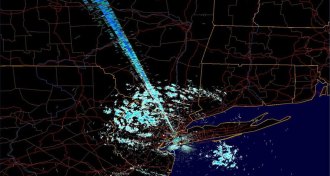 Climate
ClimateWi-Fi threatens weather forecasts
Interference from wireless technology threatens the usefulness of weather radar, meteorologists warn.
-
 Neuroscience
NeuroscienceSigns of Alzheimer’s seen in young brain’s GPS cells
Signs of Alzheimer’s can show up in the brain’s compass decades before symptoms strike.
By Meghan Rosen -
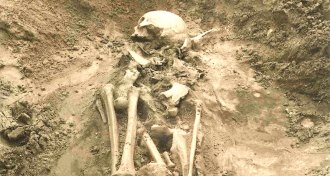 Anthropology
AnthropologyPlagues plagued the Bronze Age
Ancient bacterial DNA provides first clues to Bronze Age plagues in Europe and Asia.
By Bruce Bower -
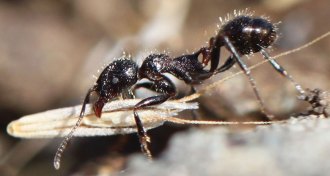 Animals
AnimalsHow architecture can make ants better workers
The right nest architecture can make harvester ants better at their job, new research shows.
By Susan Milius -
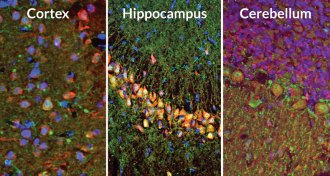 Neuroscience
NeuroscienceNets full of holes catch long-term memories
Tough structures that swaddle nerve cells may store long-term memories.